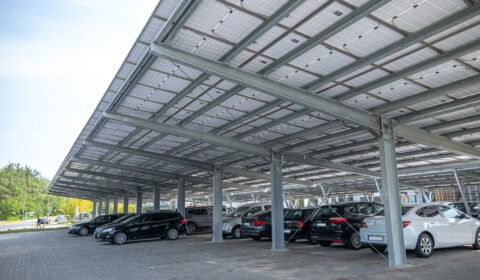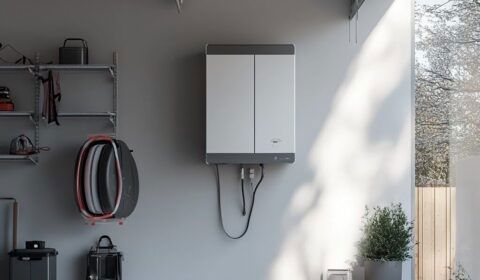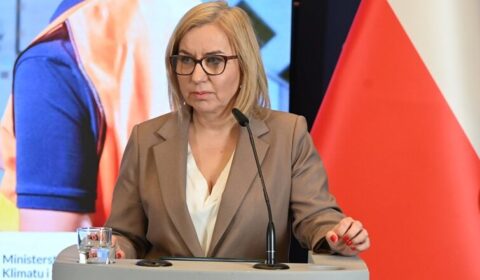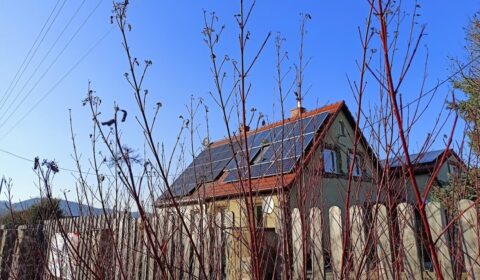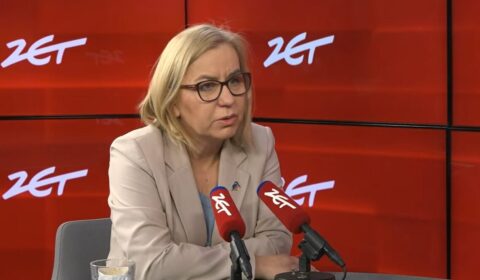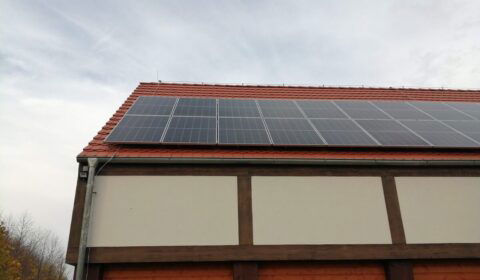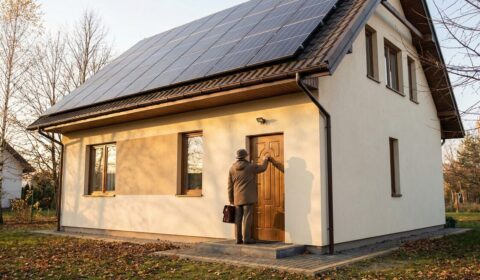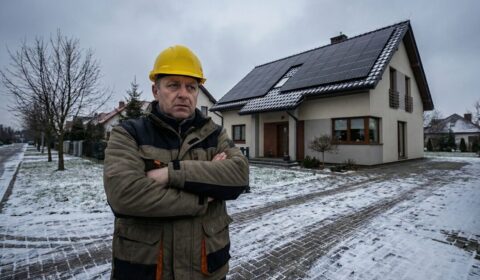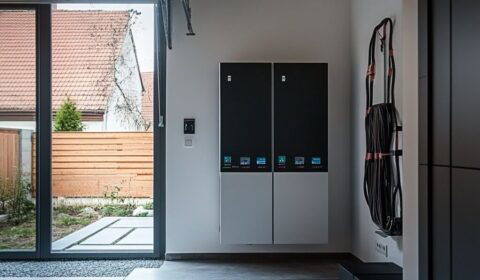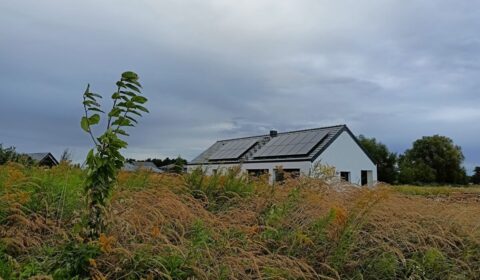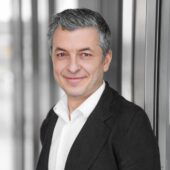Belgijski pomysł na termomodernizację
To achieve the European and economic objectives, local authorities have their role to play in terms of energy efficiency (urban renewal, mobility, biomass energy, etc.). The RenoWatt project is moving in this direction and is open to all Wallonia, with the support of the European ELENA program and the European Investment Bank. Explanations.
The Climate and Energy Objectives of the European Union
By 2030, the European Union is committed to achieving:
- A 40% decrease in greenhouse gas emissions compared to 1990: -43% compared to 2005 (ETS, emissions trading scheme) and -35% compared to 2005 (non-ETS as transportation, building, etc.);
- A share of at least 32% of renewable energy in the energy mix (binding target);
- A 32.5% increase in energy efficiency (primary energy consumption compared to 2007).
Given these forthcoming EU impositions, it is essential to set up structures to promote the energy renovation of buildings. Public and private buildings alone account for more than 40% of final energy consumption: thermal renovation of buildings will create jobs and limit the use of petroleum products.
Economic issues
The stakes of this project go beyond the obligations of the EU. Indeed, investing in energy renovation sectors means investing in activities that create value and wealth on Walloon GDP. These energy savings and the mobilization of the construction sector will lead to the acquisition of skills, within the Region and in financial tools. The implementation of adequate training for local recruitment by companies that can engage in the CPE, the apprehension of new techniques of financing the transition, the development, in the private sector, of new actors of energy services and the professionalisation of the „Walloon energy transition” are all advantages that this project can bring. More concretely,
Origin of the RenoWatt project
The RenoWatt project aims to improve the energy efficiency of public buildings. It is a one-stop-shop that supports the conclusion of the energy performance contract (EPC), selects buildings worthy of renovation, launches the public procurement procedure and assists municipalities in the implementation of the CPE. This mission will, in part, be financed by a grant from the European ELENA Program, implemented by the European Investment Bank (EIB).
In its pilot phase, it was implemented in the Liège area by the non-profit organization GRE Liège between 2014 and 2017 and led to the signing of 5 EPC for a total of 59 million, covering the renovation of 136 buildings. In May 2017, the European Union awarded him the prize for the best European energy project.
This project must now evolve and be extended to the whole of Wallonia (recommendations included in the Plan Air Climat Energie 2030). RenoWatt is now a delegated mission of the Walloon government. He was housed in the specialized company BEFin, which is 51% owned by the Walloon Government and 49% owned by SRIW Environnement.
Operation and financing of RenoWatt
The RenoWatt project will support the municipalities in their energy transition by working along three axes: energy performance contracts (EPC), pooling of buildings and central purchasing. The objective is to offer free technical assistance to the 262 municipalities of Wallonia to achieve a minimum of 100 million euros of investment in CPE on more than 500 buildings. What represents at the economic level:
- 31,000 hours of training and / or use of social integration enterprises for a minimum amount of 2 million euros
- Energy saving of 53 GWh / year
- The decrease 15,600 tons eqCO / year
- RenoWatt will pay particular attention to municipalities adhering to POLLEC (Local Energy Climate Policy). Currently, twelve municipalities have joined the RenoWatt project, ten have shown interest and three have expressed interest but postpone their commitment after the municipal elections.
A budget of 5.2 million euros for a maximum duration of 3.5 years is planned: 3.5 million euros financed by Europe (ELENA) and 1.7 million euros financed by the Walloon government .
For the EIB, which manages the ELENA technical assistance program on behalf of the European Commission, Renowatt is a prime example of how ELENA supports the preparation and implementation of public buildings investments to reduce energy consumption and increase the use of renewable energy.
ELENA – European Technical Assistance Facility for Local Energy Projects
Powerpoint presentation of the Renowatt project
Notes for the editors:
RenoWatt
The RenoWatt project aims to improve the energy efficiency of public buildings. RenoWatt provides global assistance to local authorities to support them in the energy renovation of their buildings. It is a one-stop-shop that supports the conclusion of the energy performance contract (EPC), selects buildings that are worthy of renovation, groups them in pooling, launches the public procurement procedure and assists municipalities in implementing implementation of the CPE. As many tasks as small communities can not assume to achieve the goals of renovation of public buildings and meet European requirements in this area.
This mission is financed by the European ELENA grant awarded by the European Investment Bank (EIB) for € 3.5 million, as well as by the Walloon Region for € 1.7 million.
RenoWatt is implemented by SABEFIN (owned by the Walloon Region and SRIW Environnement) through a delegated mission. The initial duration of the delegated mission is 42 months. More information on http://www.gre-liege.be/renowatt/25/renowatt
The ELENA program
ELENA is a joint initiative of the EIB and the European Commission in the framework of the Intelligent Energy for Europe (EIA II) program and is currently financed by EU funds from the Research and Innovation Program Horizon 2020.
ELENA supports project promoters by granting them technical assistance to prepare large investment projects worth more than € 30 million to improve energy efficiency, reduce emissions greenhouse gas emissions and increasing the share of renewable energy in energy consumption. ELENA also supports the development of sustainable urban transport. For more information, see: www.eib.org/en/products/advising/elena
















